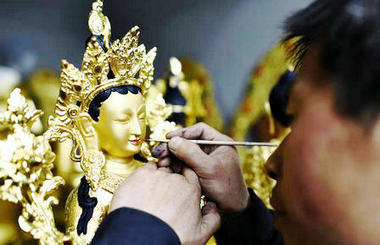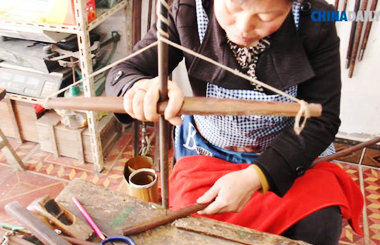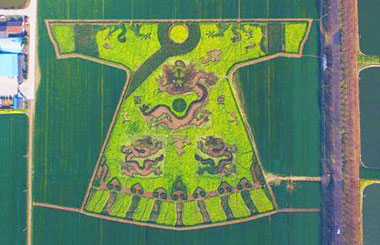Lessons to learn as we get to roots of the family tree
By Yao Ying ( China Daily ) Updated: 2016-03-26 16:00:45Thinking about it now, it is incredible that the family tree was tended to continuously for so long, surviving dynasties, wars, epidemics and natural disasters. That its continuity came to an abrupt halt in 1921 is understandable. The Qing Dynasty had then been gone for a decade, and with it disappeared long traditions and customs.
In the following decades there were clashes of warlords, the War of Resistance against Japanese Aggression, the liberation war, and the "cultural revolution" (1966-76). Millions of people were uprooted and displaced. Confucian thought, the guiding influence behind family trees, all but disappeared.
Now it seems, in an age of peace and prosperity in China, tracing family roots in an effort to know about one's forebears is in vogue again. People of my clan are lucky to have a genealogy we can refer to. Some 300 members of a WeChat group I belong to have a shared interest in working on family trees. Stories they tell include ones about outstanding family members down the generations, those who passed imperial exams to become officials and scholars. Among them was a key member of the Tongcheng School, a leading literary institution during the Qing Dynasty (1644-1911). Another was known for defeating British invaders as military commander in Taiwan.
Many others who failed to scale such heights are nevertheless recorded in the genealogy with comments including "great integrity", "knowledgeable", "courageous" or "active in charitable causes". I think this reflects people's need to identify themselves with others who share similar family and social values.
Of course, my clan is just one out of thousands. In China, many more people are seeking their roots, and preparing to include themselves in their family trees. In two episodes of the six-part BBC documentary Story of China, two family trees are featured: one surnamed Qin who traced their ancestor to the Tang Dynasty (AD 618-907) poet Qin Guan; the other surnamed Bao whose history dated back to the fourth century. The BBC program no doubt reflects the increased interest in family trees in China.
However, anyone digging into their family history is bound to find a lot more than noble deeds. For one thing, women were regarded as secondary and in the main led lives of misery. The genealogy reflects this state of affairs: they had no name they could call their own, and often deeds for which they gained recognition had to do with chastity, which often involved suicide or decades of widowhood.
As the tradition of building family trees is revived, let us hope that feudalistic ideas including discriminating against women that they sometimes reflect are well and truly buried.
|
|
|
|
|
|
|
|






















 Raymond Zhou:
Raymond Zhou: Pauline D Loh:
Pauline D Loh: Hot Pot
Hot Pot Eco China
Eco China China Dream
China Dream China Face
China Face






